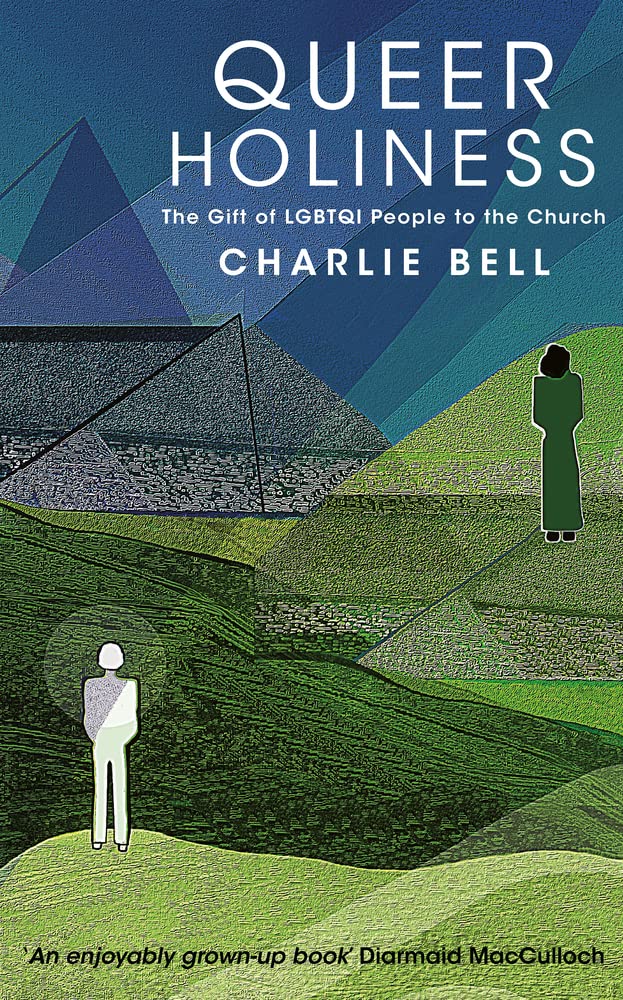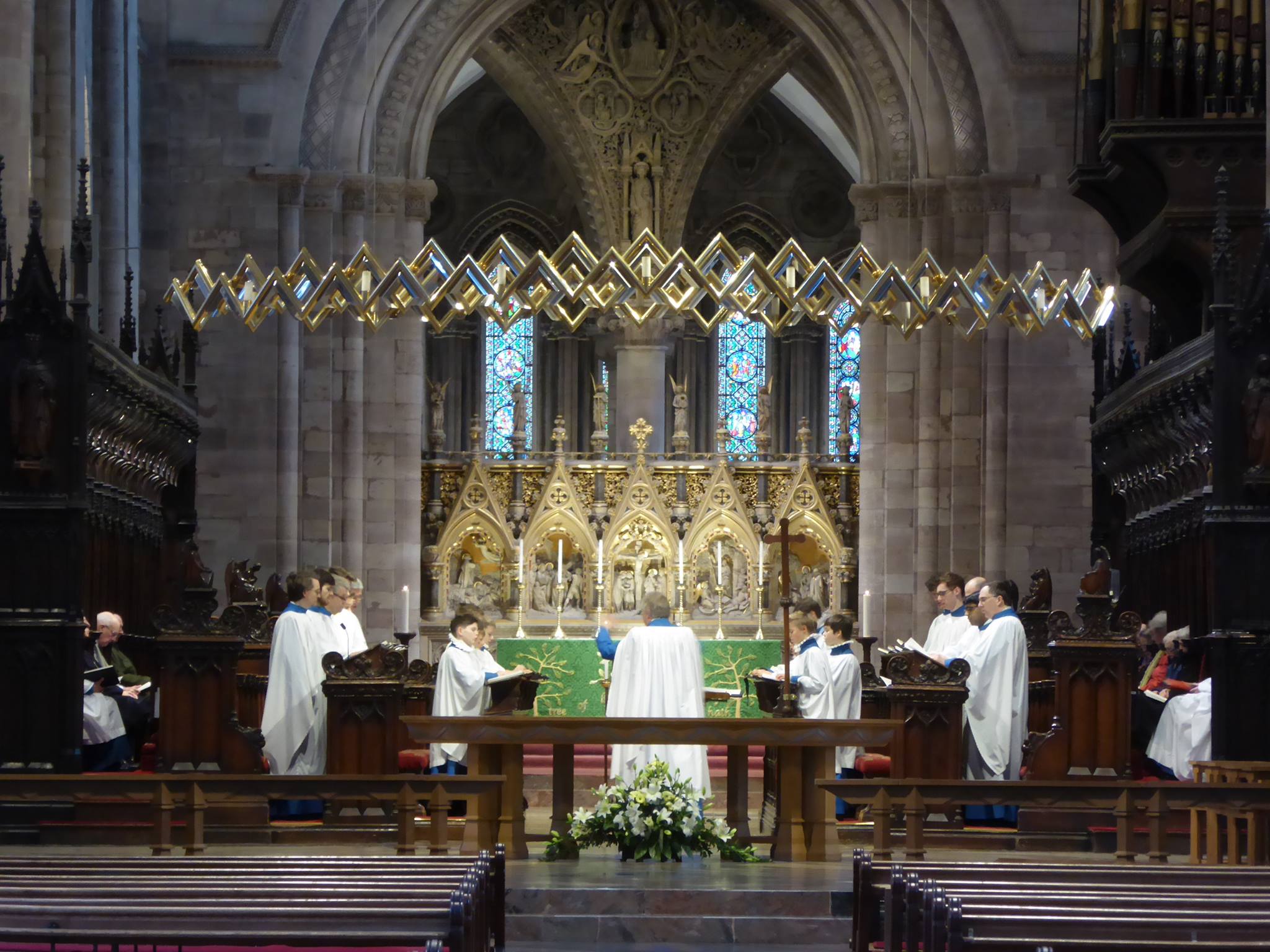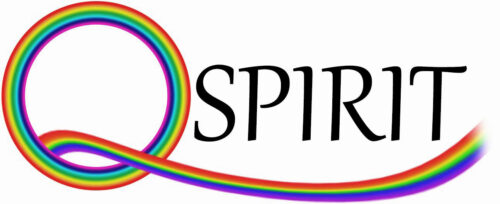Clicking on the book below will take you to the publisher’s webpage.
As an honest and proud gay Christian, I’m often asked why I don’t join the Episcopal Church. Many say it would be easier than remaining Roman Catholic. Episcopalians, after all, ordain queer folks, celebrate same-sex marriages and preserve distinctive elements of Catholic tradition—beautiful liturgy, devotion to the saints and apostolic succession. What’s not to love?
After watching contentious debates about LGBTQ people unfold at the Anglican Communion’s decennial Lambeth Conference, and reading Charlie Bell’s Queer Holiness: The Gift of LGBTQI People to the Church, I’m content to stay right where I’m at.
The grass isn’t always greener on the other side.
Ecumenical perspectives help us see the good, the bad and the ugly in other Christian traditions, but they also give us insight into our own. Bell’s work on the situation of queer folks in the Church of England does not disappoint in this regard.
Bell, a deacon and curate in the Church of England and an academic psychiatrist, is an ecumenical thinker whose criticism of Christian queerphobia cuts across denominations. Whichever side of the Tiber River queer believers choose, the challenges they face span both shores.
Queer Holiness is divided into 13 chapters that focus on biblical studies, theological anthropology, ecclesiology, ethics and the liturgy, including deep dives into hermeneutics, culture and science. It is a useful resource for anyone interested in building up their reserve LGBTQ-affirming theologies. Bell proves his orthodoxy on beliefs such as sin, the Incarnation and the value of traditional doctrine, which gives him greater credibility when he discusses LGBTQ themes.
He asks us to take seriously the bad fruits of anti-queer Christianity. Teaching that excludes and harms queer people, he argues, has its origins in contemporary Christian fears and insecurities, not the tried-and-true traditions of centuries-old faith. His own arguments are built on more than half a century of theological developments, a return, he says, to Christianity’s fundamental beliefs: a God who creates all people for flourishing, revelation that comes by way of concrete historical and contextual forms and a church that proclaims the Gospel of Jesus Christ.
“Whichever side of the Tiber River queer believers choose, the challenges they face span both shores.”
True Christianity, Bell asserts, is non-exclusivist and able to enter the complexities of human life. Faith communities must be open to change and willing to learn from a God who is still at work in the world today. When it comes to discerning the church’s relationship to queer folks, this means that Christians must close pay attention to science and the experiences of LGBTQ people.
Bell argues that Christianity is, at its root, rational and absolutely affirming of committed, intimate sexual relationships between people of the same sex. Wherever Christianity fails this ideal, Bell sees a failure of listening and a dangerous closing off of the church to the world around it.
One of the most refreshing parts of Queer Holiness is the author’s tone. Bell unabashedly claims the moral high ground against his opponents. There is no question in Bell’s mind that queerphobic interpretations of Christianity are wrong, and he is unafraid to criticize Christians and Christian communities that claim otherwise.

Here, Catholic theologians and advocates have much to learn from Bell’s honesty. Without fear of reprisal from those in ecclesiastical authority, he systematically lays out the harms caused by disaffirming doctrines with the uncompromising certainty of a dogmatics professor. LGBTQ Catholics and allies should be equally secure in our own proclamation of truth.
Still, for all of his prophetic rhetoric, Bell is not a radical. He merely wants LGBTQ people to be accepted and their committed sexual partnerships affirmed in the church. This is where is thought diverges from that of many queer theologians.
Instead of challenging the fundamental precepts of heterosexism, he seems to map them onto same-sex relationships by assuming that most queer folks seek long-term, committed partnerships. This is helpful for LGBTQ Christians who want to assimilate into mainstream Christian spaces and ethical paradigms, but it may not speak to the experiences or desires of less-conforming queer folks.
“Without fear of reprisal from those in ecclesiastical authority, [Bell] systematically lays out the harms caused by disaffirming doctrines with the uncompromising certainty of a dogmatics professor.”
Bell’s writing is accessible to most adult readers, and I would feel comfortable assigning it to a sophomore-level college course. Readers will find that Bell incorporates insights from traditional Catholic sources—scripture, Church Fathers, Thomas Aquinas and even Vatican II. His distance from Catholicism, however, allows him to poke at sacred cows in the LGBTQ Catholic movement.
At one point, Bell offers a poignant critique of Jesuit Father James Martin, whose advocacy, he claims, does not go far enough in challenging church teaching. Bell reminds us that some LGBTQ people suffer and die waiting for the magisterium to refute theologies that dehumanize them.
Queer Holiness, like most LGBTQ-oriented Christian books, focuses almost exclusively on the gay experience. Indeed, it may be more honest for those of us who work with “LGB” histories and theologies to begin using the more limited acronym. While Bell provides a brief explanation of intersex experience, trans folks are almost entirely missing from the discussion. This seems like an important omission, especially given current debates on trans identity in Western culture and Christianity.
Finally, as I read the book, I nodded in agreement with Bell’s criticisms of queerphobic Christianity. At times, however, I wondered about where he finds hope outside of affirming interpretations of Christian doctrine.
In the Church of England, as in the Roman Catholic Church, there have been grassroots believers building affirming spaces for decades, whatever their churches may teach. Bell expertly outlines the victimization of LGBTQ believers, but doesn’t offer many signs of their liberation. I would have loved to read more stories of LGBTQ strength and resistance.
Queer Holiness is a powerful rebuke of the status quo in the Church of England and other Christian communities. Charlie Bell’s engagement with Protestant and Catholic sources opens possibilities for much-needed ecumenical dialogue and collaboration on LGBTQ acceptance.



